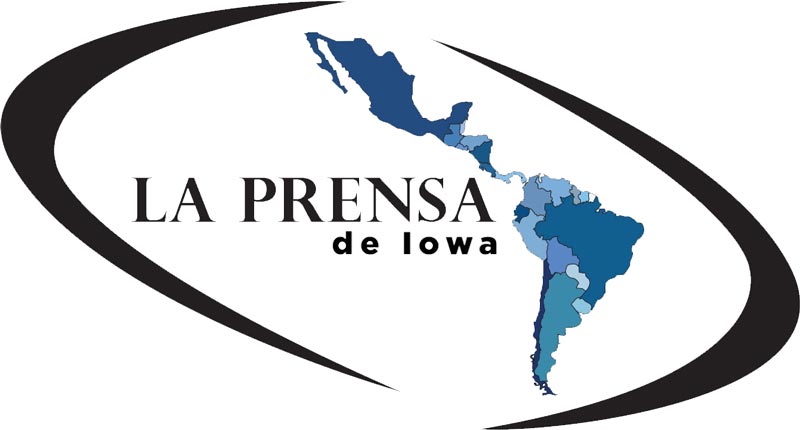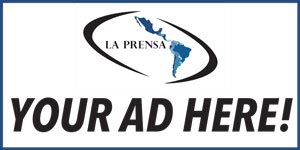9-8-8 es la nueva línea de emergencia para asistencia de crisis mentales
/En el 2020, el National Suicide Prevention Lifeline recibió casi 2.4 millones de llamadas a través de los Estados Unidos, según un reporte la organización. Foto cortesia de Priscilla Du Preez en Unsplash.
Ashley Martínez Torres
Especial para LA PRENSA Iowa
9-8-8 es la nueva línea telefónica de emergencia a nivel nacional para la prevención del suicidio que el pasado del 16 de julio del presente año se estableció a nivel nacional, para las personas que requieran asistencia inmediata. La información que el paciente da es totalmente confidencial.
Cabe mencionar que la línea de anterior de once dígitos continua 1-800-273-8255 sigue activa.
Según el sitio de National Suicide Prevention Lifeline, (Linea de prevención del suicidio a nivel nacional) creó el numero 9-8-8 para facilitar el uso a los usuarios, ya que es corto y fácil de recordar.
El numero 9-8-8 trabaja exactamente que el número largo, cuando la persona se comunica a la línea, es conectado con los asesores especializados quienes están dispuestos a escuchar, comprender, brindar apoyo y conectar a las personas con otros recursos, de ser necesario.
El director de Servicios de Crisis en Foundation 2 Drew Martel dijo, “Esperamos que el número de llamadas incremente porque es más fácil de recordarlo.”
El centro de llamadas de Foundation 2 esta localizado en Cedar Rapids, Iowa, y cuenta con un equipo de al menos 30 asesores especializados para ayudar a personas que sufren con alguna de las enfermedades mentales como la depresión, la soledad, depresión o los pensamientos suicidas, entre muchos otros. Este es uno de los dos centros de llamadas afiliados con Suicide Prevention Lifeline en Iowa.
Cabe mencionar, que la línea cuenta con más de 200 centros de crisis alrededor del país que han estado en operación desde el 2005 que han sido muy efectivos a nacional y estatal.
Según un reporte del Suicide Prevention Lifeline del 2020, el volumen de llamadas en Iowa incrementó casi un 78% en comparación con el año 2016.
Foundation 2 responde a una gran variedad de llamadas por medio de varios servicios de crisis como el Suicide Prevention Lifeline y Your Life Iowa, una organización creada por el Departamento de Salud Pública de Iowa que provee servicios de salud mental y tratamiento a adiciones. Hasta la fecha, el centro ha respondido a al menos 65,000 llamadas en lo que va del año 2022.
“Estamos contentos del número de llamadas que estamos recibiendo, porque nos hace pensar que las personas se sienten más cómodas en pedir ayuda,” explicó Drew. “Sabemos que mucha gente tiene problemas y a veces no reciben el apoyo que requieren, así que mientras más conciencia haya sobre estos servicios de ayuda, más gente tendrá la confianza de conectarse con nosotros.”
A pesar de que los centros de llamas brindan gran ayuda a miles de personas en Iowa, solo el 77% de llamas a la línea de crisis son respondidas por uno de los dos centros en el estado. La razón de esto es porque, a pesar de los mayores esfuerzos por parte de los centros, los periodos de alto volumen de llamadas pueden afectar la capacidad de responder, creando así un tiempo largo de espera.
Cuando esto sucede, muchas llamadas son automáticamente transferidas a la línea de crisis nacional lo que puede incrementar el tiempo de espera hasta tres veces mas de lo habitual, al igual que puede disminuir las conexiones con recursos dentro del estado e incrementa la posibilidad de que las personas abandonen la línea.
Director de Servicios de Crisis en Foundation 2 Drew Martel. Foto cortesia de Foundation 2.
“Este es un trabajo muy importante, pero a la vez duro y drenador, así que es un poco difícil contratar a más gente,” explicó Drew. “Sin mencionar que el proceso de contratación y entrenamiento toma tiempo antes de que la persona pueda responder a las llamadas.”
De acuerdo con Drew, un consejero nuevo tiene que pasar entre 40 a 60 horas de entrenamiento y tener cierto número de horas en educación continua cada año, además de cumplir ciertos requisitos antes de ser contratado.
Cabe mencionar que los centros de crisis estatales como la línea nacional cuentan con interpretes de diversos idiomas, lo que incluye personal que habla español.
Otra meta que esta línea de ayuda busca alcanzar es redireccionar el tráfico de llamadas de crisis mental que los servicios de emergencia del 9-1-1 reciben a diario. El jefe de la policía de Denison Brandon Rinnan comentó, “Creo que cuando el 9-1-1 fue creado su enfoque principal era emergencias médicas o criminales, y nadie esperaba que personas con crisis de salud mental se comunicaran. Creo que la nueva línea de 9-8-8 servirá para conectar a los usuarios con los recursos que necesitan.”
Jefe de Policía de Storm Lake Chris Cole. Foto cortesía de Chris Cole.
Por su parte, el jefe de policía de Storm Lake Chris Cole dijo, “En nuestro departamento recibimos frecuentemente llamadas relacionas a personas que están sufriendo alguna crisis de salud mental, así que es importante tener los recursos necesarios disponibles.”
Chris dijo que a pesar de que la línea 9-8-8 servirá de ayuda no solo para el departamento de policía de Storm Lake, sino que para que los habitantes reciban ayuda por parte de un profesional en el tema, el departamento seguirá asistiendo a la comunidad de la mejor forma posible.
Chris agregó “Esta bien no estar bien. Hay mucho estigma hacia la importancia de la salud mental, así que muchas veces las personas dudan de pedir ayuda por vergüenza. Sin embargo, esta es una gran oportunidad de recibir ayuda sin miedo a ser juzgado.”
Solo el 2% de las llamadas recibidas a la línea de crisis requieren servicios médicos de emergencia, lo cual ayuda a reducir la carga en servicios de emergencia para que estos puedan responder a otras necesidades de la seguridad pública, según el reporte del Suicide Prevention Lifeline.
De acuerdo con un estudio en American Journal of Preventative Medicine (Revista Americana de Medicina Preventiva, por su traducción al español) se encontró que 1 de cada 5 de las muertes, o el 21.7% de los casos, por intervenciones legales están relacionadas con personas que sufrían problemas de salud mental o comportamiento disruptivo a causa de abuso de substancias.
Este tipo de altercaciones y fallecimientos ha creado miedo y desconfianza entre las personas hacia los servicios de policía.
“Estos son problemas mucho más grandes que nosotros,” comentó Drew. “Lo único que podemos hacer es otorgar la mayor información posible sobre el estado de un individuo a la policía para que estén mejor preparados a manejar la situación.”
Cabe agregar que ambos departamentos de policía cuentan con ayuda de salud mental por parte de organizaciones externas al departamento.
Este articulo fue patrocinado por el Western Iowa Journalism Foundation.
Translation
New 9-8-8 mental health crisis line launched
In 2020, the National Suicide Prevention Lifeline received nearly 2.4 million calls across the United States, according to a report by the organization. Photo by Priscilla Du Preez on Unsplash.
Ashley Martínez Torres
Special for LA PRENSA Iowa
On July 16, a new line of communication for the National Suicide Prevention Lifeline was launched to the public nationwide. Those requiring mental crisis assistance can now contact help centers by dialing 9-8-8, however the previous 11-digit line (1-800-273-8255) will remain active.
According to the National Suicide Prevention Lifeline site, this three-digit number was created because it will be quicker to dial and easier to remember. When a person calls the number, they are connected with specialized counselors who are willing to listen, understand, provide support, and connect people to other resources if needed.
Director of Crisis Services at Foundation 2 Drew Martel said, "We expect that the number of calls will increase as this number is easier to remember and there is more awareness around it."
The Foundation 2 call center is located in Cedar Rapids, IA, and has a team of at least 30 specialized counselors to help people who are dealing with a mental crisis such as depression, loneliness, suicidal thoughts, among many others. This is one of two call centers affiliated with Suicide Prevention Lifeline in Iowa.
However, the line has more than 200 crisis centers around the country that have been in operation since 2005 and has proven to be effective not only nationally, but also statewide. According to a 2020 Suicide Prevention Lifeline report, the call volume in Iowa has increased nearly 78% since 2016.
Foundation 2 responds to a wide variety of calls through various crisis services such as the Suicide Prevention Lifeline and Your Life Iowa, an organization created by the Iowa Department of Public Health that provides mental health services and addiction prevention and treatment. According to Martel, the call center has responded to at least 65,000 calls so far this year.
"We're proud of the number of calls we're getting, because it makes us think people are more comfortable asking for help," Martel explained. "We know that a lot of people are struggling, but sometimes they don't get the support they need, so the more awareness there is about these support services, the more people will have the confidence to connect with us."
Even though crisis centers provide great help to thousands of people in Iowa, only 77% of the calls they receive are answered by one of two centers in the state. The reason for this is because, despite increased efforts by the centers, periods of high call volume can affect the centers' ability to respond which create a long waiting time.
When this happens, many calls are automatically transferred to the national crisis line which can increase the waiting time up to three times more than usual, as well as decrease connections with resources within the state and increase the possibility of people leaving the line.
"This is a very important job, but, at the same time, it’s hard and draining, so it's a little difficult to hire more people," Martel explained. "Not to mention, the hiring and training process takes time before a new counselor can even answer calls."
According to Martel, a new counselor has to spend 40 to 60 hours of training and have a certain number of hours in continuing education each year, in addition to meeting certain requirements before being hired.
Additionally, both the state crisis centers and the national hotline have interpreters of various languages in case the person on the phone does not speak English.
Another goal this helpline seeks to achieve is to redirect the traffic of mental crisis calls that 9-1-1 emergency services receive on a daily basis.
"I think when 9-1-1 was created its main focus was on medical or legal emergencies, but no one expected that mental health crisis would be another reason people would call," said Denison Police Chief Brandon Rinnan.
"We get several mental health calls frequently, so it's important to have the necessary resources available," said Storm Lake Police Chief Chris Cole.
Cole explained that although this hotline will help not only the Storm Lake Police Department, but also help residents get help from a mental health professional, the department will continue to assist the community with any problems they have in the best possible way.
Only two percent of calls received to the crisis line require emergency medical services, which helps reduce the burden on emergency services so they can respond to other public safety needs, according to the Suicide Prevention Lifeline report.
"I feel this opportunity can serve to connect people to the resources they need and decrease the criminalization of people with mental health problems," Rinnan added.
According to a study in the American Journal of Preventative Medicine, it was found that 1 in 5 deaths, or 21.7% of cases, from legal interventions are related to people who suffered mental health problems or disruptive behavior due to substance abuse. These types of altercations and deaths have created fear and distrust among people towards police officers nationwide.
"These problems are so much bigger than us," Martel said. "The only thing we can do is to give as much information as possible about an individual's condition to the police, so they are better prepared to handle the situation."
Both police departments have mental health help from organizations outside the department.
"It's okay not to be well,” Cole added. “There is a lot of stigma towards the importance of mental health, so many times people hesitate to ask for help out of shame. However, this is a great opportunity to receive help without fear of being judged."
This article was sponsored by the Western Iowa Journalism Foundation.












































